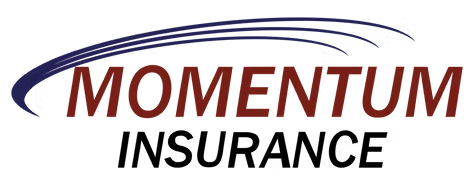Life insurance is something you should consider adding to your financial plan if you’re interested in providing a measure of security for the ones you love. Proceeds from a life insurance policy can be used to pay final expenses, plan for children’s education, eliminate outstanding debts, or cover day-to-day expenses.
Life Insurance 101
Many financial experts consider life insurance to be the cornerstone of sound financial planning. It can be an important tool in the following situations:
1. Replace income for dependents
If your family depends on an individual’s income, life insurance can replace your income if the you die. The most common example of this is parents with children for things like daycare and education. Insurance to replace income can be especially useful if the government- or employer sponsored benefits of the surviving spouse or domestic partner will be reduced after their companion dies.
2. Pay final expenses
Life insurance can pay funeral and burial costs, probate and other estate administration costs, debts, and medical expenses not covered by health insurance.
3. Create an inheritance for heirs
Even those with no other assets to pass on, can create an inheritance by buying a life insurance policy and naming their heirs as beneficiaries.
4. Pay federal “death” taxes and state “death” taxes
Life insurance benefits can pay for estate taxes so that heirs will not have to liquidate other assets or take a smaller inheritance. Changes in the federal “death” tax rules between now and January 1, 2011 will likely lessen the impact of this tax on some people, but some states are offsetting those federal decreases with increases in their state-level estate taxes.
5. Make significant charitable contributions
By making a charity the beneficiary of their life insurance policies, individuals can make a much larger contribution than if they donated the cash equivalent of the policy’s premiums.
6. Create a source of savings
Some types of life insurance create a cash value that, if not paid out as a death benefit, can be borrowed or withdrawn on the owner’s request. Since most people make paying their life insurance policy premiums a high priority, buying a cash-value type policy can create a kind of “forced” savings plan. Furthermore, the interest credited is tax deferred (and tax exempt if the money is paid as a death claim).
There are 2 major types of life insurance – term and whole life:
Term Life
LifeTerm insurance is the simplest form of life insurance. It pays only if death occurs during the term of the policy, which is usually from one to 30 years. Most term policies have no other benefit provisions. There are two basic types of term life insurance policies—level term and decreasing term. Level term means that the death benefit stays the same throughout the duration of the policy. Decreasing term means that the death benefit drops, usually in one-year increments, over the course of the policy’s term.
Whole Life
Whole life or permanent insurance pays a death benefit whenever the policyholder dies. There are three major types of whole life or permanent life insurance—traditional whole life, universal life, and variable universal life, and there are variations within each type.
In the case of traditional whole life, both the death benefit and the premium are designed to stay the same (level) throughout the life of the policy. The cost per $1,000 of benefit increases as the insured person ages, and it obviously gets very high when the insured lives to 80 and beyond. The insurance company keeps the premium level by charging a premium that, in the early years, is higher than what is needed to pay claims, investing that money, and then using it to supplement the level premium to help pay the cost of life insurance for older people.
By law, when these “overpayments” reach a certain amount, they must be available to the policyholder as a cash value if he or she decides not to continue with the original plan. The cash value is an alternative, not an additional, benefit under the policy.
